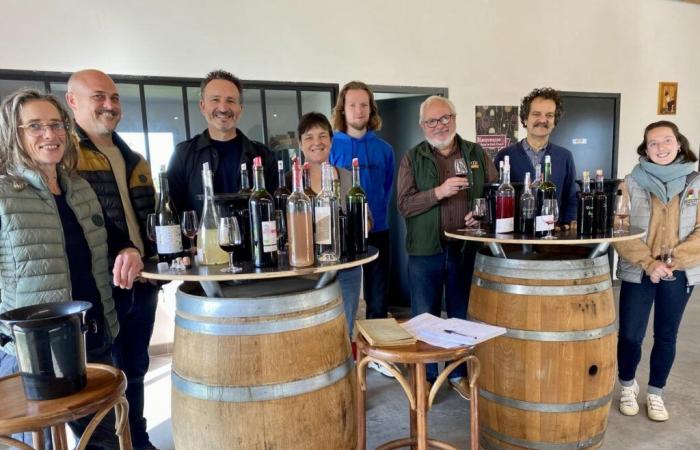Sun too early, rain which forced them to harvest immature grapes… The organic winegrowers of the department did not announce that they would be at the wedding, during the traditional tasting of the vintage, organized each year by Agrobio 47, under the leadership of Jacques Réjalot. However, there would have been reason to rejoice, in this year 2024, since in the new edition of the Hachette wine guide, one of the spearheads of the little-known terroir of Thézac-Perricard, the Domaine de Lancement, was distinguished as crush. A boon for winegrower Sandrine Annibal, but also for Lot-et-Garonne.
However, while tasting each other's bottles, the invited winegrowers drew an unfavorable portrait of the 2024 vintage. Suffering more brutally than their conventional colleagues, the climatic hazards, the abundant rain at the end of August forced them to harvest grapes that are not ripe enough to prevent them from rotting. “Not to mention the colossal loss of yield on Merlot,” added Jacques Réjalot while affirming “but, Merlot is not dead! »
An unloved vineyard?
As a result, the winegrowers have produced light wines, around 12-13 degrees, fruity and not very tannic, “but which will not be wines for keeping”, underlined the winegrower of Domaine de Pichon. We will therefore have to quickly sell off production on a market where organic Lot-et-Garonnais wines are struggling to find their place, “including in the department,” emphasized Sandrine Annibal. Few restaurateurs play the game of discovering a terroir that is nevertheless very rich. We are still 60 to 70 independent winegrowers for 200 appellations.”
Another subject of concern raised by Jacques Réjalot, affecting the entire Lot-et-Garonnais vineyard, the uprooting of vines, “an economic necessity, even one of survival which I understand very well, but which is carried out urgently and blindly. And as a result, it’s a real genocide on the old vines. However, they are a heritage for biodiversity, because, unlike those which were planted from the 1960s, they are not cloned.”






